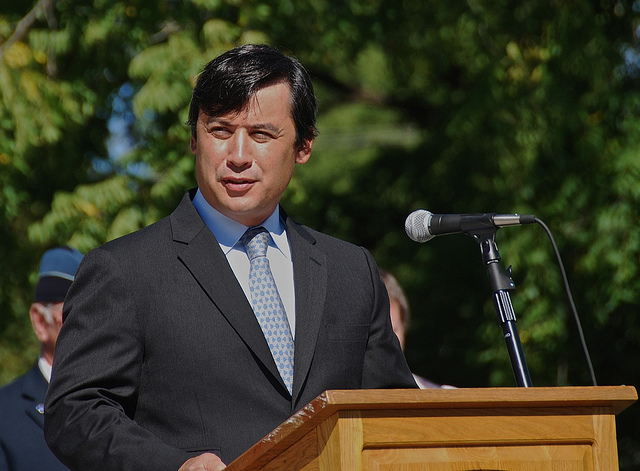Reform is in the air on Parliament Hill. It’s a very gentle breeze, still quite tentative, but veteran Hill watchers can feel it as it wafts through the party caucuses. True, it has not yet had any noticeable effect on the Harper administration – still in scandal lock-down mode – but an increasing number of Conservative backbenchers are actually starting to entertain the notion that, just maybe, there are better ways to do things.
The reform movement does not have a leader, as such. However, it does have public advocates, the two most prominent being Elizabeth May, the leader of the Green Party, and Michael Chong, the Conservative MP for Wellington-Halton Hills and a former Harper cabinet minister. Both have proposed reforms that have generated interest and support across party lines.
Leader of a caucus with just two members (herself and former New Democrat Bruce Hyer), May has no real power, but she does have influence on progressive issues and she commands respect as one of the hardest-working MPs in Ottawa (she gets 400,000 letters and emails a year). She wants to redress the balance – or imbalance – of power on Parliament Hill by reducing the iron control of the Prime Minister and the unelected officials in his office, and by increasing the opportunities of ordinary MPs to question and to oppose.
The Harper administration tried to silence her last fall by introducing a seemingly innocuous procedural change. Until then, independent MPs, like May, were able to move amendments to government bills and the Commons would debate and vote on them.
Now, however, May and other independents must first submit their amendments to a parliamentary committee. The committees, of course, are tightly controlled by government majorities. It means that instead of being able to bring an issue for debate and a vote in the Commons, May sees her causes being killed off by Tories in committee rooms.
May thinks the state of Canada’s democracy should be a ballot-box issue in the 2015 election. “People have died for us to live in a democracy and we are letting democracy slip through our fingers,” she says. The crowds she addresses on her travels across the country enthusiastically applaud her message, even if it hasn’t penetrated the stone walls of the Langevin Block. Not yet, anyway.
While May focuses on the power imbalance between the ministry and parliamentarians, Michael Chong is approaching the same broad issue from a slightly different perspective. Last month, he introduced a private member’s bill, a reform act, that would shift power away from party leaders and toward ordinary MPs, party caucuses and local riding associations.
For example, leaders would no longer to be able to appoint election candidates without the blessing of local associations; caucuses would be given decision-making powers; and party leaders would be made more accountable to their caucuses. The caucuses would not be able to directly replace the leader, but they would be empowered to trigger a leadership review.
A petition signed by 15 per cent of a party’s MPs would prompt a secret caucus ballot on the leadership. If a majority voted in favour of changing the leader, a second secret ballot would be held immediately to choose an interim leader to serve until the party could elect a new permanent leader.
Although Chong’s bill has not been met with glad cries of welcome from the PMO, nor has it suffered outright rejection. It has attracted support from an estimated 40 Conservative backbenchers, many of them chafing under the constraints of the PMO.
Former Tory Prime Minister Joe Clark, at the urging of Wilfrid Laurier University’s Paul Heinbecker, a former United Nations ambassador, has endorsed the bill, as, of course, has Elizabeth May. Liberal leader Justin Trudeau appears to be on side and it looks as though NDP members will have a free vote.
In a genuinely free vote, Commons-wide, the bill would pass, and the breeze of reform would become a stiff wind.
Cambridge resident Geoffrey Stevens, an author and former Ottawa columnist and managing editor of the Globe and Mail, teaches political science at Wilfrid Laurier University and the University of Guelph. His column appears each Monday in the Kitchener Record and Guleph Mercury. He welcomes comments at [email protected]
Image: michaelchong.ca



